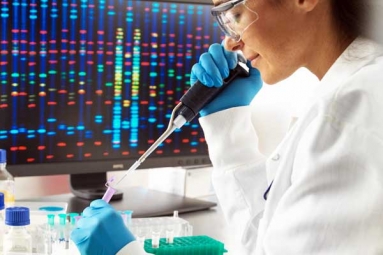
(Image source from: Discovery of key protein paves way for new malaria treatment})
The researchers at the Medical Research Council's (MRC) Toxicology Unit, based at Leicester University and the London School of Hygiene and Tropical Medicine, have identified one of the key proteins required by malaria parasite to survive in the human red blood cells and stopped the protein from working, which eventually killed the parasite.
Protein kinase (PfPKG) is the new protein identified to play a key role in several pathways that allow the survival of the parasite in the blood. This is a real breakthrough and will lead to new way of malaria treatment. An Indian scientist, Dr. Mahmood Alam, is among the group of researchers.
“There has been a great deal of excitement among malaria scientists about the outcome of our research. It not only tells us about the biochemical pathways that are essential for the parasite to survive in our bodies but also allows us to design drugs that can spot these essential pathways and thereby kill the parasite,” Dr. Alam said.
“To study the survival mechanisms of P falciparum, I joined the research group of Prof Andrew Tobin at University of Leicester and then at Medical Research Council, Toxicology Unit. Here I have used the cutting edge technology of phosphoproteomics to further study the biochemical pathways in malaria parasite,” he added.
State-of-the-art methods were used by the scientists to analyze the biochemical pathways involved in allowing the parasite to be alive. Chemical genetics is one of such methods, which include the use of synthetic chemicals along with the introduction of genetic changes to the Deoxyribonucleic acid (DNA) of the malaria parasite.
Professor Tobin, co-lead author of the study, said, “This is a real breakthrough in our understanding of how malaria survives in the blood stream and invades red blood cells.
We’ve revealed a process that allows this to happen and if it can be targeted by drugs we could see something that stops malaria in its tracks without causing toxic side-effects.”
- Sumana
















